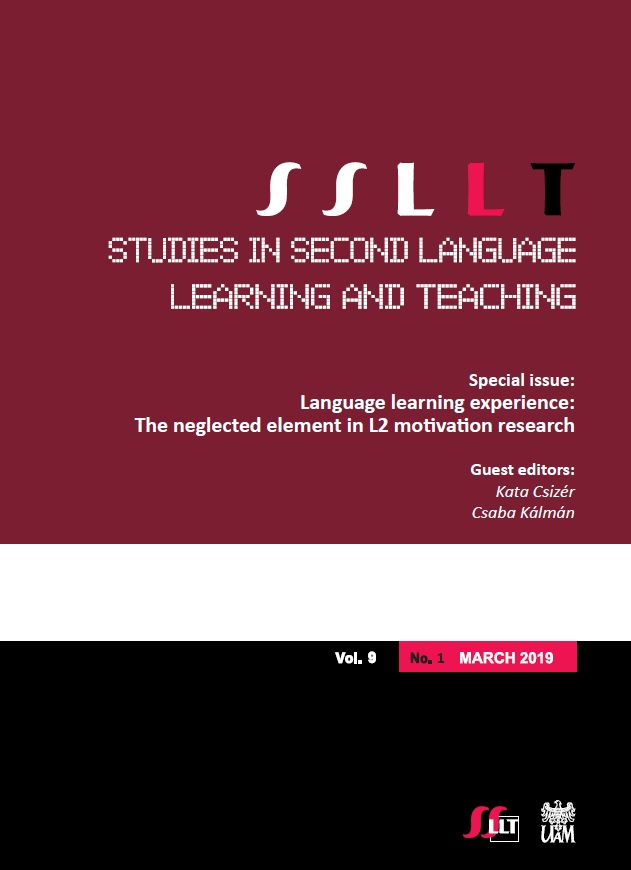Editorial
Editorial
Author(s): Kata Csizér, Csaba KálmánSubject(s): Foreign languages learning, Applied Linguistics, Philology
Published by: Wojskowe Biuro Historyczne im. gen. broni Kazimierza Sosnkowskiego
Summary/Abstract: Due to the emergence of the self in foreign/second language (L2) motivation theory and research following the introduction of the L2 Motivational Self System (L2MSS) (Dörnyei, 2005, 2009), the past decade has witnessed a surge of attention devoted to the two self dimensions: the Ideal L2 Self, and the Ought-to L2 self of the model (Boo, Dörnyei, & Ryan, 2015). The third core component, however, the L2 Learning Experience has become undeservedly marginalized. We think that such relative neglect has been brought about by two phenomena. On the one hand, the L2 Learning Experience, has so far been underconceptualized, and, as such, its intangible, amorphous nature has undermined its applicability in research on a similar scale that a more elaborate theorization of the other two future self-guides has enabled. On the other hand, by incorporating Markus and Nurius’ (1986) possible selves theory into L2 motivation research, Dörnyei was able to import adaptable and novel concepts to the field, which set the course of the research agenda for years to come.
Journal: Studies in Second Language Learning and Teaching
- Issue Year: IX/2019
- Issue No: 1
- Page Range: 13-17
- Page Count: 5
- Language: English

